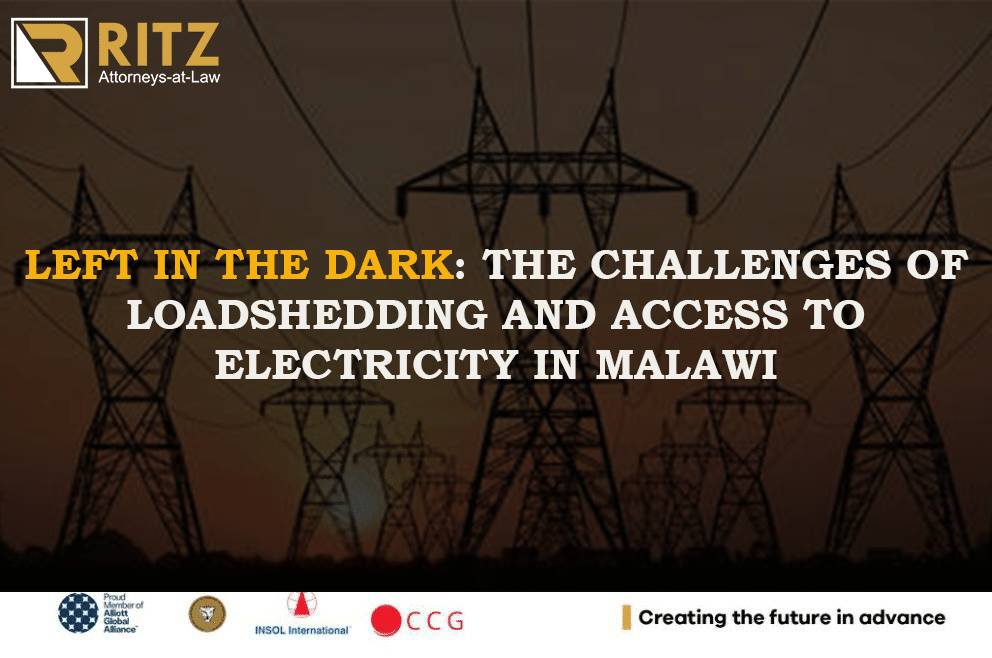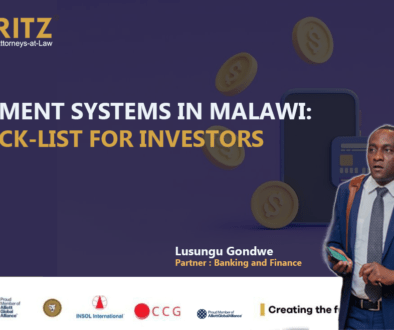Electricity is an essential service that is vital for economic and social development. It is widely recognized as a basic human right, and many countries, including Malawi, have enshrined the right to electricity in their Constitutions. However, despite the legal framework in place, many Malawians still lack access to electricity, particularly those living in rural areas. Malawians who have access to electricity are subject to “load shedding” (planned power outages), a common occurrence in Malawi. This is the main challenge that the country faces in providing access to electricity to its citizens.
The following explores the laws in Malawi on the right to electricity and the challenges facing the country in providing access to this basic service.
Legal Framework
The Constitution of Malawi provides for the right to access basic services, including electricity as a fundamental right. Section 30 (1) of the Constitution talks of the Right to Development “All persons and peoples have a right to development and therefore to the enjoyment of economic, social, cultural and political development…” Section 30 (2) further states that the state will take all necessary measures for the realization of the right to development. Such measures shall include, amongst other things, equality of opportunity for all in their access to basic resources, education, health services, food, shelter, employment, and infrastructure. Electricity is not specifically mentioned, but it is considered a basic service/resource, therefore it is covered by this provision.
In addition to the Constitution, the Electricity Act (Chapter 73:01 of the Laws of Malawi) can be said to be the main legislation governing the provision of Electricity in Malawi. The Act establishes the Electricity Supply Corporation of Malawi (ESCOM) as the sole provider of electricity in the country. This gives the corporation the responsibility to ensure that electricity is supplied to all parts of the country. The Act further provides for the regulation of the electricity sector, including the licensing of electricity generation, transmission, and distribution facilities. It requires ESCOM to provide electricity to all consumers, regardless of their location or ability to pay.
Challenges to the right to electricity
Despite the legal framework in place, the right to electricity is not always guaranteed in Malawi. The country faces several challenges in providing electricity to its citizens.
- Social and Economic Consequences: The lack of access to electricity or constant load-shedding has significant social and economic consequences. Without electricity, many businesses cannot operate effectively, limiting economic growth and job creation. In addition, access to electricity is essential for basic services such as healthcare and education.
- Insufficient Electricity Generation Capacity: Malawi’s electricity generation capacity is limited, and the country relies heavily on hydropower. However, hydropower facilities are often affected by droughts, leading to power shortages. This has resulted in the need for load shedding to balance the available power supply and demand.
- Lack of Investment: The Government of Malawi has limited resources to invest in electricity infrastructure and this has resulted in a lack of investment in the sector. This limits the country’s ability to expand access to electricity and address the challenges of load-shedding.
- Limited Renewable Energy: While Malawi has significant potential for renewable energy, such as solar, wind, and, biomass, the development of renewable energy projects has been slow due to a lack of investment and regulatory challenges. The country’s reliance on hydropower exposes it to significant risks from droughts, underscoring the need to diversify the energy mix.
- Low Energy Efficiency: Malawi has low energy efficiency levels, contributing to high electricity demand and load-shedding. Improving energy efficiency in households, commercial, buildings and industries can help to reduce demand and increase access to electricity.
- Inadequate Legal and Regulatory Frameworks: Malawi’s legal and regulatory frameworks for the energy sector are outdated and do not adequately support investment and development in the sector. The government needs to establish clear policies and regulations that support the development of renewable energy, energy efficiency, and private investment in the sector.
To Wrap Things Up
Loadshedding is a serious inconvenience to Malawian citizens’ daily lives. The continued power outages cause a wave of anxiety and unnecessary stress for Malawians. In fact, I struggled to finish typing this article on time because our area goes through 14 hours of load shedding in a day. This is the norm in thousands of households, many fail to complete most daily tasks because of load-shedding.
Addressing these challenges will require a coordinated effort from the government, development partners, the private sector, and civil society. The government needs to prioritize investment in energy infrastructure and improve the legal and regulatory frameworks that govern the sector. At the same time, development partners can provide technical and financial assistance to support the development of renewable energy projects and improve energy efficiency. The private sector can play a significant role in the development of the energy sector by investing in renewable energy projects and providing innovative energy solutions to rural areas. Civil society and community-based organizations can also play a role in raising awareness about the benefits of access to electricity and advocating for policies that support the development of the energy sector.
In conclusion, the challenges of load-shedding and access to electricity in Malawi are significant, but they can be addressed with a concerted effort from all stakeholders. Addressing these challenges will not only improve access to electricity but also support the country’s economic and social development.





March 16, 2023 @ 10:28 pm
Interesting and insightful read. Thank you for enlightenment in some of these issues.